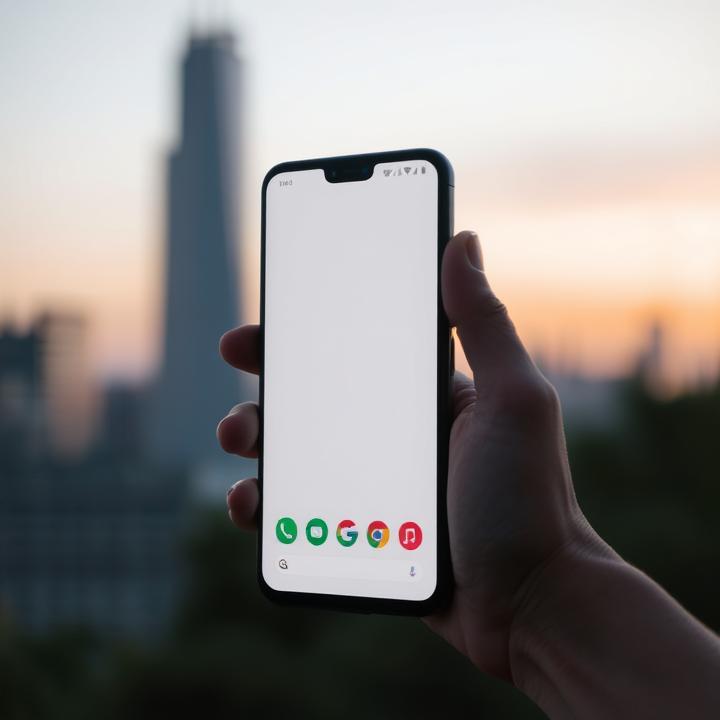
Google Pixel uses AI to make everyday tasks easier, offering features like better photography, real-time language translation, and predictive text to enhance user experiences.
The Google Pixel series is widely known for integrating cutting-edge artificial intelligence (AI) to create a smarter, more intuitive smartphone experience. From superior photography to enhanced voice recognition, AI plays a crucial role in making Pixel phones more helpful in day-to-day tasks. As AI technology continues to advance, Pixel phones are at the forefront of providing users with features that improve productivity, enhance convenience, and offer personalized interactions.
This article explores the key ways AI makes the Google Pixel even more helpful for users, offering innovative solutions that go beyond typical smartphone functionality.
1. AI-Powered Photography: The Best Shots Every Time
One of the standout features of Google Pixel phones is their AI-driven photography capabilities. Even with relatively modest hardware compared to other flagship smartphones, Pixel cameras consistently deliver stunning images, thanks largely to the integration of AI.
1.1 Computational Photography
Google Pixel’s AI enhances image quality using computational photography, a process where AI algorithms combine multiple shots to create the best possible image. Features like HDR+, Super Res Zoom, and Night Sight are powered by AI to improve sharpness, color accuracy, and low-light performance.
- Night Sight: AI-based Night Sight mode allows users to capture bright, clear photos in low-light conditions without the need for a flash. It works by intelligently adjusting exposure settings and combining multiple frames to produce a well-lit image.
- Portrait Mode: AI enhances portrait shots by accurately detecting and blurring the background while keeping the subject sharp, mimicking the effect of a DSLR camera’s depth of field.
1.2 Real Tone Technology
The Google Pixel also uses AI to improve skin tone representation in photos through its Real Tone technology. By training AI models on a diverse range of skin tones, Google ensures that its cameras capture people of all ethnicities more accurately and beautifully, making photography more inclusive.
2. Google Assistant: Smarter, More Contextual AI Integration
Google Assistant is one of the most powerful AI-driven features on the Pixel, designed to assist users with everything from managing their day to controlling smart devices. With continued AI improvements, the Assistant has become more responsive, accurate, and context-aware, delivering a more natural interaction with your phone.
2.1 Call Screening
One of the most useful AI-driven features of the Pixel is Call Screening. With AI, the phone can automatically screen potential spam calls, providing a real-time transcription of what the caller says. The user can then decide whether to answer, ignore, or block the call—all without needing to interact directly with the caller.
2.2 Voice Commands with Better Understanding
Google Assistant on Pixel phones leverages AI for natural language processing (NLP), enabling more accurate voice recognition and understanding of complex queries. AI allows Google Assistant to understand context better, which means it can carry out more nuanced tasks, like scheduling an appointment or sending a message based on an earlier conversation.
2.3 AI-Powered Typing and Predictive Text
Pixel’s Gboard keyboard uses AI for Smart Compose and Predictive Text to help users type faster and more accurately. These features learn from your typing habits and suggest words or entire phrases, reducing the effort needed to draft messages or emails.
3. Real-Time AI Translation: Breaking Language Barriers
Google Pixel integrates Google Translate directly into the device’s system, offering real-time AI-powered language translation. This feature is especially helpful for travelers or anyone communicating in different languages. Whether translating text, speech, or signs, Pixel’s AI capabilities make translation fast and seamless.
3.1 Interpreter Mode
Using Interpreter Mode, users can hold real-time conversations in different languages. The AI translates speech in near real-time, displaying the translated text on the screen and even speaking it aloud. This makes Pixel an invaluable tool for overcoming language barriers in various settings, from business meetings to travel experiences.
3.2 Live Caption and Subtitles
Pixel’s AI also enables Live Caption, which provides real-time subtitles for any media playing on the device. Whether you’re watching a video, listening to a podcast, or participating in a video call, AI can instantly generate captions, making content more accessible for users with hearing impairments or those in noisy environments.
4. Adaptive Battery: AI Enhances Battery Life
Battery life is one of the most critical concerns for smartphone users, and Pixel’s Adaptive Battery feature uses AI to optimize power consumption. By learning how and when you use specific apps, AI can limit background activity for rarely used apps, conserving battery power for more important tasks.
4.1 Adaptive Charging
AI also powers Adaptive Charging, which helps prolong the battery lifespan. The Pixel phone learns your charging habits and adjusts the charging speed to ensure that the battery stays healthy over time. For instance, if you charge your phone overnight, it will slow down the charging process and complete it just before you wake up.
5. AI for Personal Safety: Pixel’s Advanced Security Features
Google has also integrated AI into Pixel’s personal safety features, making it a smart choice for users concerned with security and wellbeing.
5.1 Car Crash Detection
Using a combination of AI, motion sensors, and machine learning, the Pixel can detect if you’ve been in a car crash. If a severe accident is detected, the phone will automatically alert emergency services, potentially saving lives in critical moments.
5.2 Hold for Me
The Hold for Me feature, powered by Google’s Duplex AI, makes waiting on hold more convenient. When you’re placed on hold during a call, the AI takes over, listening for when a human operator returns and notifying you when it’s time to rejoin the call.
6. Pixel’s AI-Enhanced Security: Better Privacy and Protection
Pixel phones use AI to improve not only performance but also security. Google’s Titan M2 security chip is built into the device, enhancing the encryption of sensitive data. It works alongside AI to detect and block potential threats in real-time.
6.1 On-Device AI Processing
AI-driven tasks like image recognition and personal data processing happen directly on the device, ensuring that sensitive information doesn’t need to be sent to the cloud. This enhances privacy by keeping data local and secure.
6.2 Face Unlock and Fingerprint Scanning
AI also enhances biometric security features, such as Face Unlock and Fingerprint Scanning, making them faster and more accurate while safeguarding against spoofing or unauthorized access.
The Future of AI in Google Pixel
AI plays an integral role in the Google Pixel experience, transforming how users interact with their smartphones. From delivering superior photography and smarter voice assistants to providing real-time translation and enhanced security, AI makes the Pixel more than just a phone—it’s an intelligent companion for everyday tasks. As Google continues to innovate, we can expect even more AI-driven features that push the boundaries of what smartphones can do.


